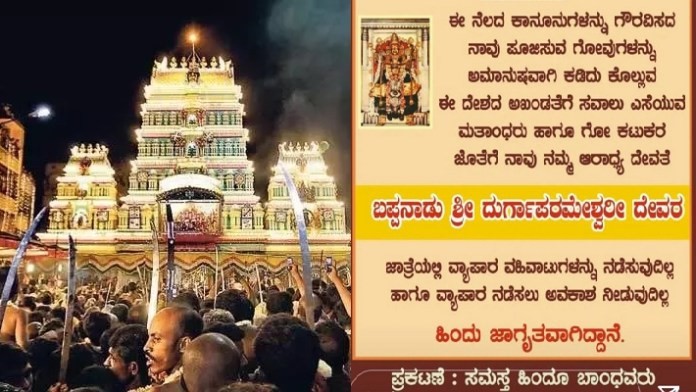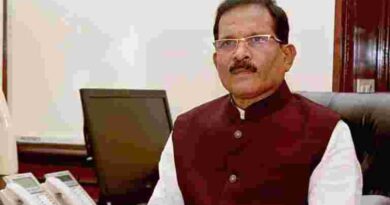The Hijab Controversy Reached To Economic Boycott Of Muslims
The hijab controversy reached to the economic boycott of Muslims, became the subject of new political debate among the people.
After the recent Karnataka High Court verdict on the hijab controversy, Muslim businessmen who set up shops in the temple premises closed their shops in protest against the decision.
Now religious places in Karnataka are deciding not to allot shops in their premises to anyone other than Hindus.
This decision is not only causing financial injury to the Muslim community, but it has also become a topic of new political debate.
Last week, six major religious places in Karnataka decided not to allot shops in their premises to anyone other than Hindus.
Because after the Karnataka High Court’s decision on the Hijab controversy, all these shopkeepers had closed their shops in protest against the court’s decision.
Whereas till now in many major religious places, Muslim businessmen had been doing business of selling worship items in temples, etc.
On the other hand, the Karnataka government has also refused to interfere in the decision of the temple administration, taking the cover of a decision taken by the Congress government about 20 years ago.
In fact, in 2002, the then Congress government, in Rule 12 of the Karnataka Hindu Religious Institution and Charitable Endowment Act, states that the land of any Hindu religious institution or site shall not be given on lease to any non-Hindu.
Muslim traders have been barred from doing business in Mangalore at Sri Mangaladevi Temple, Bappanadu Durgaparameshwari Temple, Katipalla Ganeshpura Sri Mahaganapathi Temple, and Puttur Sri Mahalingeshwara Temple.
Banners have been put up in front of temples to ban non-Hindu traders from the fair.
The aggressive role of organizations like Hindu Jagran Vedic and Tulunadu Hindu Sena, Kaup is visible behind this decision.
Talking to reporters in Udupi, Udupi District Street Vendors Association district secretary Mohammad Arif admitted that the banners were put up during the annual Kaup Marigudi festival.
In which it was said that Muslim vendors should not be allowed to enter. According to Arif, similar banners were displayed at the Padubidri temple festival as well.
The association has urged Muslim street vendors to be allowed to do business during Hindu festivals and annual temple fairs.
The memorandum has been given by Tulunadu Hindu Sena to the temple administration.
It has been clearly warned that if any Muslim is allowed to set up a stall during ‘Suggi Mari Puja’, you (temple officials) will be responsible.
The Tulunadu Hindu Sena argues that people who do not have respect for our God, our religious places, and follow a different religion, should not be allowed to trade during our religious festivals.




